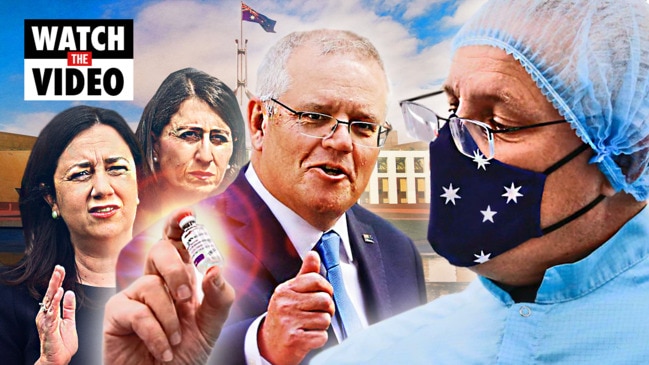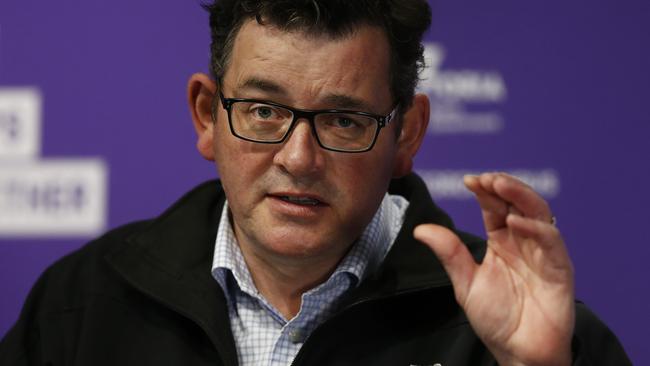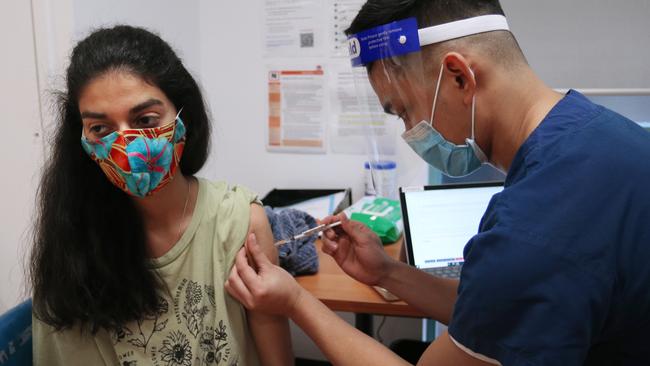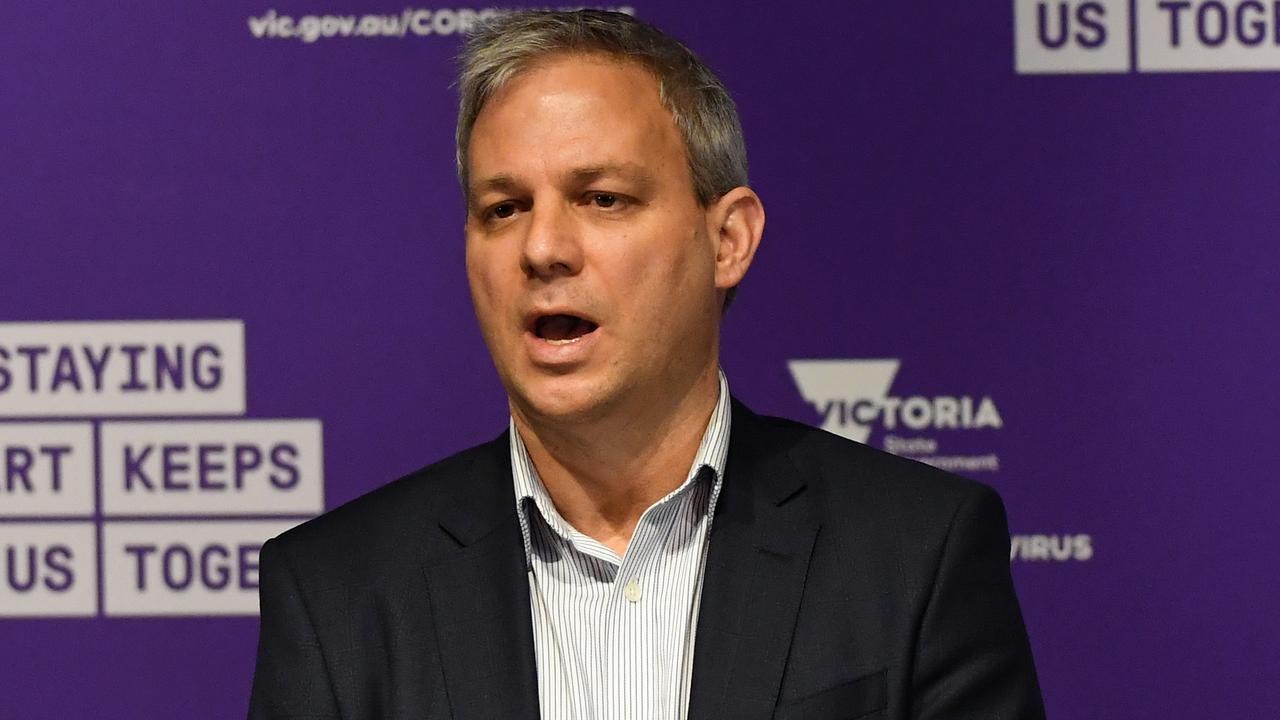Victoria demands national vaccination target to fast-track end to damaging lockdowns
Premier Dan Andrews believes implementing this major change to the vaccine rollout will fast-track an end to damaging lockdowns.

Coronavirus
Don't miss out on the headlines from Coronavirus. Followed categories will be added to My News.
Victoria is calling for a nationally-agreed vaccination target which would trigger an end to lockdowns and significant restrictions, and border closures between states.
Premier Daniel Andrews will on Friday take to national cabinet a four-point plan, which also proposes a crackdown on international travel until the target — which Victoria suggests is between 60 and 80 per cent — is reached. Then overseas travel would be significantly opened up.
Quarantine conditions could be eased for vaccinated international travellers, especially people coming from low-risk countries. Incoming travellers could also avoid hotel or hub quarantine if they agreed to rapid testing, wearing tracking devices and/or stringent testing prior to flights.
“Australians want to know that there’s a plan to get us through this pandemic,” Mr Andrews said. “This is the work that needs to happen to get us there and people are entitled to expect their governments to work together to get it done.
With more than half of Australia’s population in lockdown, Mr Andrews on Thursday warned Victoria could not keep shutting down once vaccinations were widely available.
“We wouldn’t be having lockdowns to protect people who weren’t prepared to protect themselves,” the Premier said.

Under the proposed crackdown on overseas travel until the vaccination target was reached, Mr Andrews flagged that Australia’s intake of international arrivals should be slashed by at least half.
The plan proposes tightening the criteria for letting people enter or exit Australia, with only vaccinated people granted exemptions, tougher pre-flight conditions and a reduction in business travel exemptions.
“Locking some people out is much better than locking everybody down,” Mr Andrews said. “That’s the government’s position, that’s my position and that’s what I’ll argue at national cabinet.”
Even if the nation as a whole reaches the target, every state and territory will also need to get close in order to trigger the leap back to normality, under the plan.
The move comes amid outbreaks across the country, with lockdowns in place in Western Australia, the Northern Territory, Queensland and New South Wales.
Victoria, South Australia and Tasmania have each increased border restrictions, prompting calls for an urgent national approach to drive down the risk of further outbreaks.
It is understood significant concern remains around hotel quarantine, with state government predictions forecasting an average of 1.5 outbreaks a month if the current intake is not reduced.
Senior federal minister Simon Birmingham said the federal government was willing to reduce international arrival caps.
“We’ve shown as a government, a willingness to firstly close Australia’s international borders to allow only a tiny proportion of regular travel back into the country, overwhelmingly only Australians and their direct relatives coming back in,” he said.
“Now, we’ve also shown a willingness to tighten it even further, such as during the Indian outbreak if the risk factors are greater. And we’ll always continue to look at that evidence and work through it with the states and territories.”
The commonwealth finally released a demographic breakdown on Thursday, which revealed 7.92 per cent of the adult population was fully vaccinated, and showed Australia was on track to inoculate 72 per cent of those eligible by Christmas. There are 1,633,434 fully vaccinated Australians, including 15.45 per cent of those over 70.

There were 161,390 doses administered on Wednesday, the biggest day so far, after younger adults were told they could seek the AstraZeneca jab through their GPs.
Vaccine rollout chief Lieutenant General John Frewen said lotteries, competitions and other offers to encourage vaccinations were all “on the table”, as he worked with businesses on how they might “contribute to incentive schemes”.
He also revealed even if Australia experienced “moderate setbacks” through unforeseen supply chain disruptions, there would still be plenty of vaccine to give everyone the jab by the end of the year.
It comes after days of political warfare over the move to allow under-40s to get AstraZeneca, despite the extremely rare risk of blood clots. Queensland chief health officer Dr Jeannette Young, who said on Wednesday that under-40s should not get the AstraZeneca jab, doubled down on Thursday and said the reaction to her comments was “absolutely silly”.
But the former federal deputy chief medical officer Dr Nick Coatsworth said she was “out on a very lonely limb” and that “nearly every medical leader” was concerned by her stance.
“The facts are that the risk of dying from an AstraZeneca vaccine is less than one in a million, and people need to have choice,” he said.




